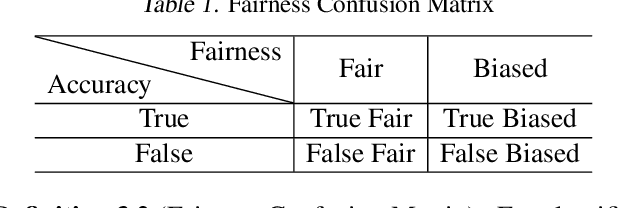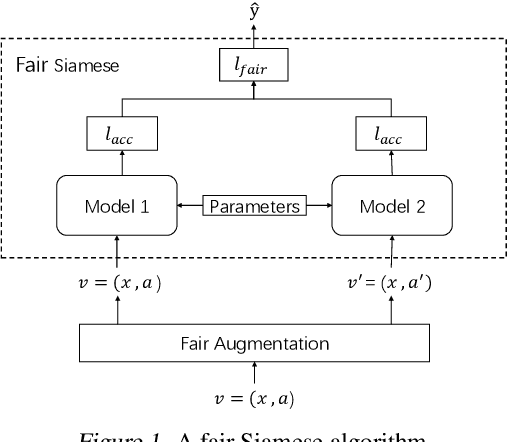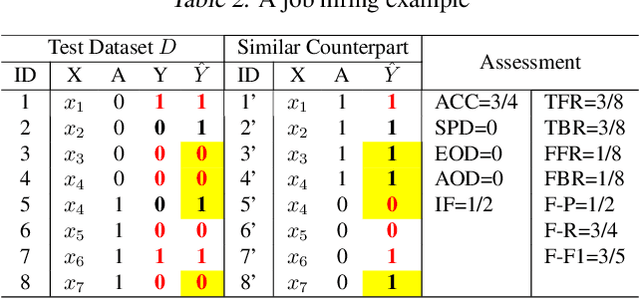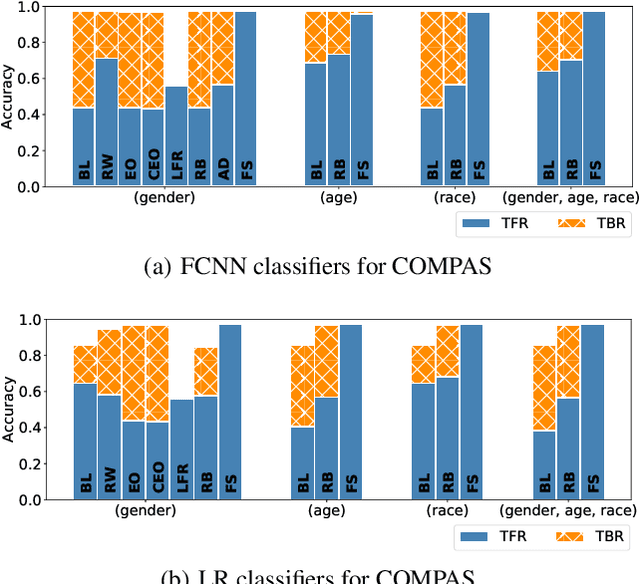Accurate Fairness: Improving Individual Fairness without Trading Accuracy
Paper and Code
May 18, 2022



Accuracy and fairness are both crucial aspects for trustworthy machine learning. However, in practice, enhancing one aspect may sacrifice the other inevitably. We propose in this paper a new fairness criterion, accurate fairness, to assess whether an individual is treated both accurately and fairly regardless of protected attributes. We further propose new fairness metrics, fair-precision, fair-recall and fair-F1 score, to evaluate the reliability of a machine learning model from the perspective of accurate fairness. Thus, the side effects of enhancing just one of the two aspects, i.e., true bias and false fairness, can be effectively identified with our criterion. We then present a fair Siamese approach for accurate fairness training. To the best of our knowledge, this is the first time that a Siamese approach is adapted for bias mitigation. Case studies with typical fairness benchmarks demonstrate that our fair Siamese approach can, on average, promote the 17.4% higher individual fairness, the 11.5% higher fair-F1 score, and the 4.7% higher accuracy of a machine learning model than the state-of-the-art bias mitigation techniques. Finally, our approach is applied to mitigate the possible service discrimination with a real Ctrip dataset, by fairly serving on average 97.9% customers with different consumption habits who pay the same prices for the same rooms (20.7% more than original models).
 Add to Chrome
Add to Chrome Add to Firefox
Add to Firefox Add to Edge
Add to Edge